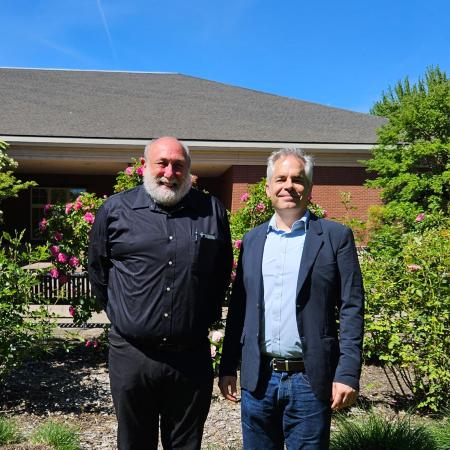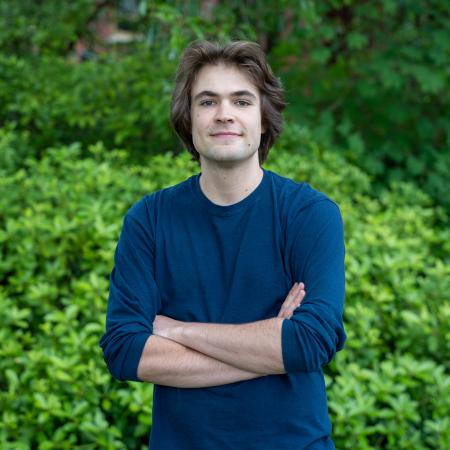A Noyce Teaching Fellows project recently received a 6-year grant from the National Science Foundation to provide support for 16 teaching fellows to complete a Master's degree program in secondary mathematics or science education at Oregon State University. The project will also provide teaching fellows with professional development and support during their first four years of teaching in high needs schools.
The Ambitious Math and Science Teaching Fellows project provides research-based teacher preparation courses and clinical experiences, professional development and support for teacher retention. The project seeks to promote teacher learning instructional practices that support every student, across racial, ethnic, gender, and linguistic boundaries.
Mathematics professor Thomas Dick in the College of Science is the and principal investigator (PI) and mathematics education associate professor Rebekah Elliott and science education assistant professor SueAnn Bottom both in the College of Education are co-PIs. OSU’s Graduate School is also providing the teaching fellows with significant tuition support.
In 2014, Education Week reported that Oregon ranked 40th among all states for academic achievement, measured largely by student reading and math scores on a national exam given to a sampling of students in all states. Oregon scores on the National Assessment of Educational Progress have stagnated over the past decade while most other states have recorded a lot of progress; and Oregon's low-income students have been left far behind.
An earlier NSF Noyce-funded project---Dick and Elliott were the PIs on that project--supported four teaching fellows who completed their initial licensure in mathematics and several master teaching fellows in mathematics. The new project has a greater emphasis on developing new teachers and includes both math and science education.
“These fellows will have a tremendous long-term impact on future generations of teachers and students,” said Sastry G. Pantula, Dean of the College of Science at OSU. “We are extremely grateful to our state congressional representatives for supporting science and NSF. It is having and will have a tremendous impact on Oregonians.”
The project will be implemented in partnership with the Mid-Valley Math and Science Network, and school districts supporting OSU teacher candidates, and those districts hiring the Noyce Teaching Fellows after completing their licensure programs.
“Research in the College in collaboration with the Department of Mathematics is growing knowledge about teaching practices that will act as a model for improving and enriching the experience students have in math classes,” said Larry Flick, Dean of OSU’s College of Education.
Fellows will be introduced to the foundations of this ambitious teaching model (high leverage teaching practices, equitable instruction, and discipline-specific practices) during the master’s program and use these foundations in the classroom. Investigators hypothesize that the ambitious teaching model will be especially effective in STEM classrooms in high-needs schools.
The Ambitious Math and Science Teaching Fellows project will be evaluated by assessing fellows’ progress in terms of mathematical quality of instruction and formative teaching observation. Results and resources developed through this work will be disseminated through the Mid-Valley Math Science Teaching Network, an established online network of Oregon teachers and administrators, and at meetings of the Teachers of Teachers of Mathematics.




